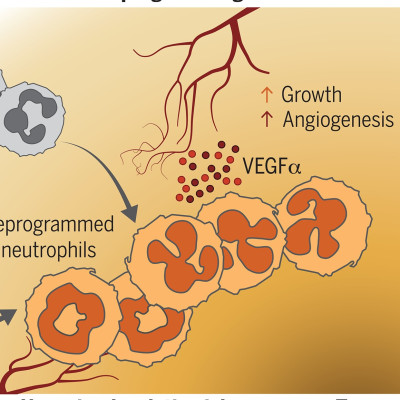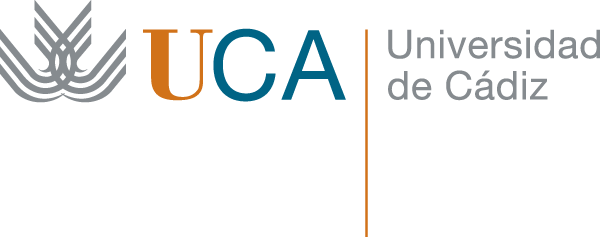Publication
Deterministic reprogramming of neutrophils within tumors
M.S.F. Ng, I. Kwok, L. Tan, C. Shi, D. Cerezo, Y. Tan, K. Leong, G.F. Calvo, K. Yang, Y. Zhang, J. Jin, K.H. Liong, D. Wu, R. He, ..., A. Hidalgo, F. Ginhoux, L.G. Ng
Science 383, eadf6493 (2024)
MOLAB authors
Abstract
Neutrophils are the most abundant white blood cell population in the body. Although different types of neutrophils frequently gather in the tumor microenvironment, it is currently unclear how they might coordinate to support tumor growth. Using an experimental model of pancreatic cancer, Ng et al. report populations of tumor-infiltrating neutrophils that converged to develop into a single long-lived “T3” cell subset. T3 neutrophils prompted the growth of new blood vessels, which enhanced tumor survival in areas with low oxygen and limited nutrients. Depleting T3 neutrophils or inhibiting their angiogenic function reduced tumor growth. The researchers suggest that neutrophils could be reprogrammed within the tumor microenvironment into a single functional state, and modulation of protumoral neutrophil responses may have therapeutic potential.















